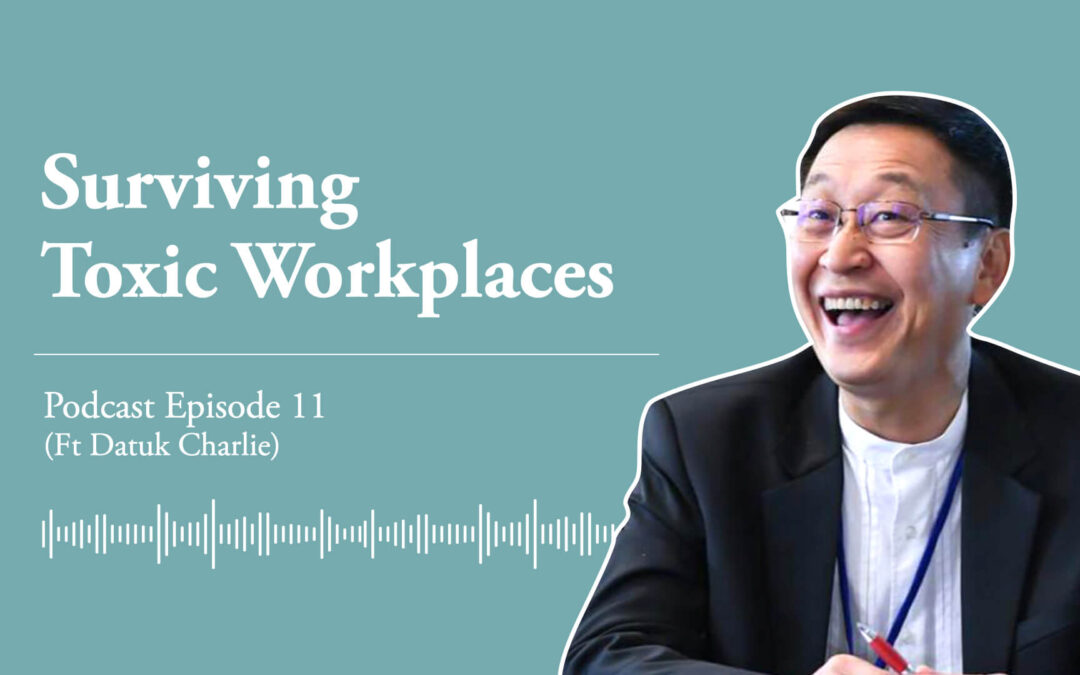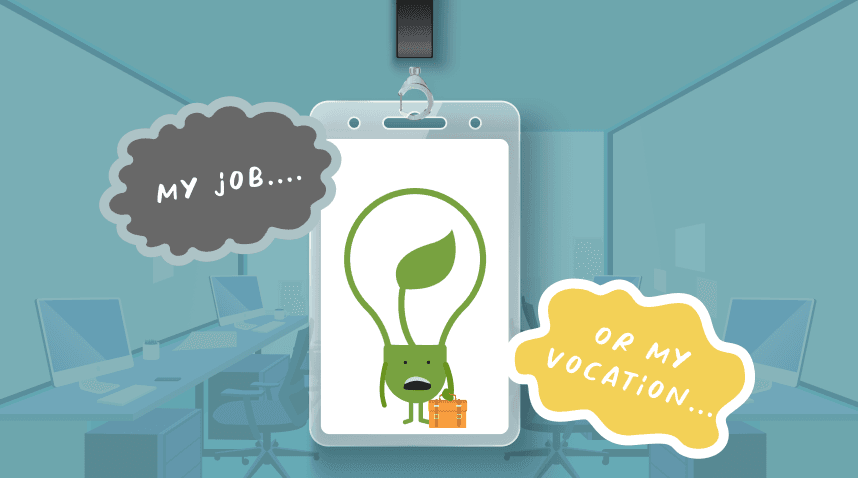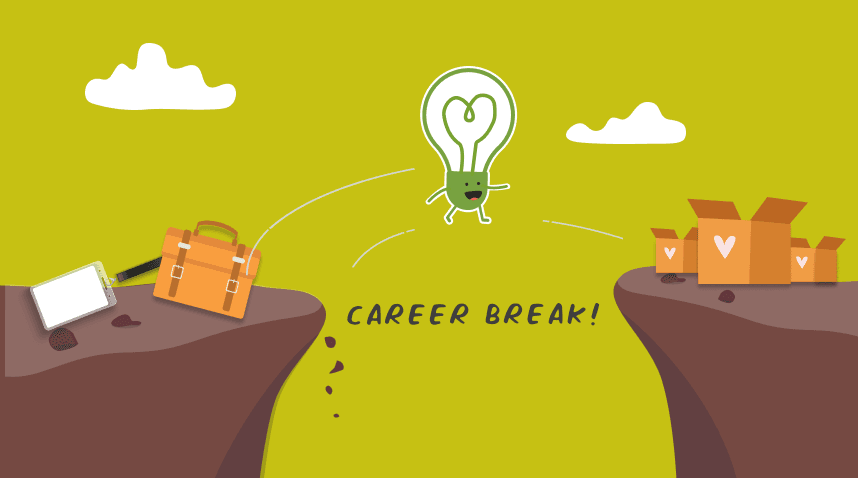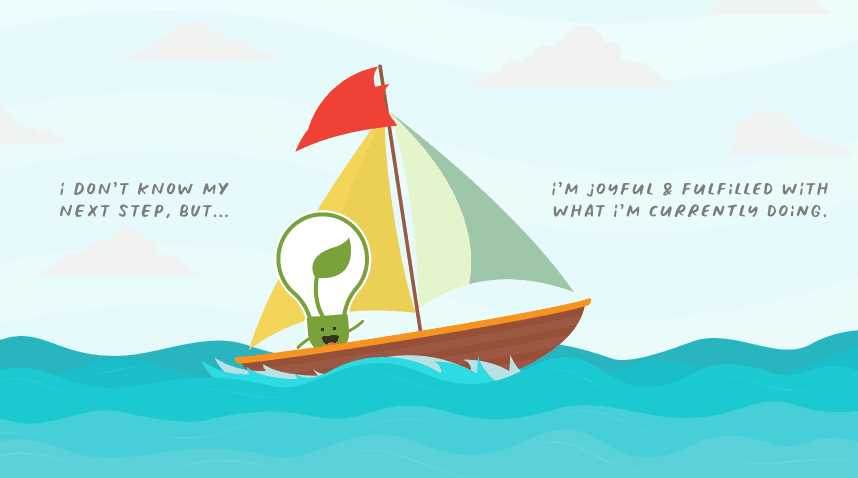
Ep11 Surviving Toxic Workplaces (Ft Datuk Charlie)
Kai Xin 00:01
Hey friends, this is Kai Xin, and you’re listening to the Handful of Leaves podcast where we bring you practical Buddhist wisdom for a happier life.
In our highly competitive society, workplace politics and backstabbing can be rampant in some organizations. Some might do anything to climb to the top of the corporate ladder. Even if you may want to be part of the dog-eat-dog world, even if you purely just want to do your job well, inevitably there will be jealous colleagues who see you as a threat and start making things hard for you.
Is there a way to play this game well without losing our virtue and sanity? The answer is yes. In this episode, my co-host, Cheryl, speaks with Datuk Charlie to learn how. Datuk Charlie was the former director and group CEO of numerous listed companies in Malaysia with over 40 years of experience. He also played a pivotal role in founding several Buddhist organisations.
In this interview, Datuk Charlie shares instances in his career when colleagues gang up to bring him down, and how he turned a hostile colleague who sabotaged his work into one of his best friends today.
Datuk Charlie helped us see that we have the power to ease workplace toxicity, and how to find the balance between enduring the toxic workplace and escaping from it.
Cheryl 01:49
Thank you so much for joining us on our Handful Of Leaves episode. Today, we’re excited to talk about a topic that’s high on everybody’s mind. Stress and burnout are something that a lot of people at least in Singapore are facing, and I can’t wait to dig into your knowledge and experiences on the topic. But before that, I was just curious, what made you so inspired to share the Dhamma?
Datuk Charlie Chia 02:14
Well, I was actually more of a ritual Taoist knowing very little about Buddhism, I was introduced to the Buddhist Centre in Malacca. I was from Malacca. And there is this temple called Seck Kia Eenh Temple in Malacca, where the Baba and the Nyonya will meet most of the time for cultural activities. Then, of course, we have the chief Reverend, which is K. Sri Dhammananda, who used to travel to Malacca to deliver talks. And I was sort of very captivated by the logical and scientific explanations of the Buddhist teachings. And being a science student, myself, I was baffled, somehow the Buddhist teachings have covered all the aspects from A to Z, without any doubts over the authenticity and the workings of science. So I was keen, I started learning, reading, and attending whatever retreat and talks that I can attend, and it continued to make sense.
The teachings were practical, without dogma or superstitions, and yet, they contributed toward self-development. Because of that, I felt that it was good to help to spread the Dhamma because there was this slogan at that time that said “Know Dhamma, and make Dhamma known.” And so we became missioners from then onwards.
Cheryl 03:34
Lovely. So you have known Dhamma, even before you started your career, how many years have you been in the workforce?
Datuk Charlie Chia 03:42
Well, I have been in the workforce for almost 40 years. I am already 67 this year. And I’ve already retired for about three to four years, although currently, I’m still practising as a legal professional in my law firm.
Cheryl 03:56
Was there any specific teaching that helped you view your career or guide you in your career?
Datuk Charlie Chia 04:06
Well, I think the Buddha’s teachings have actually introduced quite a good set of values and ethics. Whenever we are in the corporate sector, we must be seen to be ethical, and we must be seen, be honest, and creditworthy, because at the end of the day, in business, we are talking about credit worthiness, that if people trust you, and people believe in you, then you can sell better your ideas can also be used and introduced.
So somehow or other because of our precepts, we tend to be more honest to ourselves and honest to others. Secondly, is that I think the Noble Eightfold Path has also provided us with self-discipline, to train ourselves in the right thinking and moving in the right direction.
Let me give a simple example. When we talk about right action- if you’re going to do some actions, it must benefit both yourself and others. Because there are some actions that benefit others but don’t benefit yourself, that is not right. Then any actions that benefit yourself and don’t benefit others also are not right. Of course, any action that doesn’t benefit yourself and others are one, you have to keep away from it. So, all the actions that we do, must be seen in such a way that will be a win-win situation, or both parties must benefit as a result. So when you have that kind of ethics and maxim, then each decision and each action is not just to benefit yourself, but also to benefit everybody else, especially your clients, your associates, and those people who work very closely with you. At the same time, it’s also applicable to boss and subordinates relationship.
In a working relationship in companies and corporates, the staff must believe in their leaders. And they must actually be inspired by the leaders and they will actually more of go to lengths in order to achieve the targets and objectives. So if you are a leader who can say basically, you all don’t work for me, but you work with me, and thus you become an inspiration, and that you are willing to go to the ground, in order to bear all the difficulties and problems and come up with solutions together. And at the end of the day, when there are results, you share the glamour of it, you share the rewards of it and acknowledge that it is everybody’s contributions, rather than you yourself take all the honour and praise. So once the staff or the subordinate sees that you are in that direction, they believe in you, and they follow you.
Throughout my corporate life, I have had staff who follow me from company to company, they always believed that they have far to go if they were to be with a leader of their choice.
Cheryl 06:54
Are you able to maybe share with us a specific example of how you managed to bring a win-win kind of scenario?
Datuk Charlie Chia 07:02
You see, I was in the property development industry for many, many years. Although I started as a quantity surveyor, eventually, I ventured into real estate and properties, and then finally, of course, I ended up in a legal profession. So when I wanted to sell a product, especially a house or an apartment, where we design the apartment, we don’t design according to our tastes, our rates. Sometimes, you know, it may be suitable for you, but may not be suitable for others.
So at the end of the day, you should actually design with them in your mind. And that this will benefit them, will give them more advantages in their movements. And this will then give them that luxury of life. Then when that happens, you introduce the product to them and get them inspired and enthusiastic and excited. Subsequently, once they actually bought the property, you don’t leave them hanging, you must continue to provide the services, customer service, and also after sales, which is also a very important factor. At the end of the day, you must be there to make sure that they enjoy the process from the beginning right up to the end.
A lot of us after we sell our products, at the end of the day is you are left to fend for yourself, which is actually not creditworthy. And if you have a good purchaser or good customer, they are your customer for life, and not only their customer for life, they are also your introducer for life. So you will get referrals and business over and over again. Isn’t that a better option? So always with that in mind that it is a win-win. In every action you do, you find that your business will grow.
Cheryl 08:43
I think this is a very great example of thinking about the long term rather than short-term conveniences. From your experiences, have you ever been in a toxic workplace before?
Datuk Charlie Chia 08:55
Many times I have, because usually when I joined a new company, I’ve been sort of like parachuted into a new company, and that’s the time when you face a lot of flak. The reason is that there were people from the rank and file ready to fill your position, but somehow the management or the board decides to actually pull someone from outside and then eventually parachute in. And thus then you start to run as a leader, instead of coming from the rank and file, then you will get sabotaged, you will get a lot of staff who might not be happy. At the end of the day, they will try all sorts of ways in order to get you out. But the most important thing is that you have to win your friends. I have always succeeded in doing that.
I remember when I was in the first property company when I started to join this first property company after construction company and I was placed at the general manager level. And there was this particular finance manager who was actually aiming for that post. So when I came in, he was very antagonistic. He sabotaged every proposal I make, he sort of put in a lot of cold water. And I had a tough time. And I decided that you know, the Buddha says that when you are in this type of position, you mustn’t overcome it with a lot of hatefulness and anger. The Dhammapada says hatred is not overcome by hatred, by love alone is hatred ceased. So I decided to put it to a test. I say, Okay, I’m going to be nice to him, I’m going to be pleasant to him, I’m going to love him.
At the same time every morning when I meet him along the corridors or at the doors, I will then greet him, “Good Morning.” Of course, no answer, initially, he will just refuse to acknowledge me, and he’ll walk past you as if you are a ghost. And I keep on trying because I believe in the Buddha’s teaching, I say it will work one day. Sure enough, after a number of months, then when I say good morning, I can hear a grunt. And the grunt was, “hmph.” I thought that was good that there was a response. Let me try further and better. And sure enough, I kept on going. “Good morning, how are you? I hope your day will be good.” And then eventually, one fine day, the response came back and he says, “Good morning.” Well, that was great, a sort of improvement and breakthrough, the Cold War is over.
And then subsequently, as the conversation now started properly, from good morning, and how are you, and he says, “Yeah, I’m fine.” And then eventually, one fine morning, I say, “Would you like to join me for breakfast?” and he says, okay, then he started to join me for breakfast. And then breakfast turned to lunch, and lunch turned into dinners when we work late. We either buy ourselves our packed dinners, or we go out for dinners. Wow, and that was actually the breakthrough that we have. And true enough, we became such good friends, that even until today, (I remember that was back in 1991), this person is now one of my best friends. He will call me, to check in on me. And eventually, I’m doing his legal work now. All his legal is being done by me. From a very toxic environment, it has actually flourished, and we work together very much.
There was another one more situation when I was again, sort of talent hunted, and then eventually was placed as Chie Operations Officer. Somehow I was supposed to work with this group of people who were actually on the way out because the new management didn’t like this group of people. When I came in, they were all out trying to also get me out. So a toxic situation again, and I then decided that I do the same thing. And eventually, you will find that these two guys, who were one of the senior COO and one of the senior CFO, and are now great friends, and we meet every once in a while for our dinners. So there can be a lot of situations when the Buddhist teachings, especially the Dhammapada if you read the Dhammapada very well, you’ll find that it has so many values and gems, that when you apply it, it solves a lot of our working problems.
Cheryl 13:23
It is very challenging the situations that you shared, and the people are just hostile, the people that just really dislike you from the start. And when you say you apply loving kindness, you try to be friendly and smile at the person, was there any point where you felt so tired and you wanted to just give up?
Datuk Charlie Chia 13:42
There is another maxim in the Buddha’s teachings: have patience, tolerance, and understanding. These are actually the three great virtues it hangs in my room, patience, tolerance, and understanding, and actually have helped to solve a lot of issues like this. Have patience, because when there is no patience, we tend to leave things halfway and we give up, we are not tolerant, of the difficulties that we faced. And then subsequently, of course, when you have the right understanding of the Buddha’s teaching, that by the power of all the metta that you have, somehow or rather it will happen your way.
I’ll give a simple example. They always say believe in the power of karma. There are many people who have done a lot of good deeds in their life, but they have not been bestowed with all the good results and good fortunes, then, some of them will just utter and to say, I’ve done so many good things in my life, yet I never enjoy any of these fruits. But the idea is that the conditions are not conducive. You see, karma is like a seed of potential. When you plant a seed, the soil must be good, the air must be good. The nutrients must be good, the shade must be good. The oxygen must be there. But if you don’t have all these nutrients and conditions which are conducive to the arising of the seed, it will never germinate, you will remain a seed hibernating all the while.
We may have done a lot of good deeds in our life, and sowed a lot of good seeds, but as long as our mind is not positive, our mind is not at peace, and our mind is not calm and happy. If we are desperate, and we keep on grumbling, and say, “You see, I’ve not been able to get results,” then, of course, results won’t come your way. Positiveness will attract positive events. So we always say do good, get good, do bad, you get bad. But at the same time, I think we must believe in the power of karma, because karma is actually a natural law, and all the workings of nature, especially when you contribute things, when you do a lot of good things, when you do a lot of efforts towards a direction, believe in the natural laws, that eventually nature will then take its form, and it will bestow upon us.
Cheryl 16:01
I really love what you share because when we are put into hostile situations it is something that we cannot control. But when you look into practising patience, practising kindness and understanding these are things within our power, and we are able to then control, and at least plant the seeds of goodness, and with right understanding, as you say, you know, when the conditions are ripe, the fruits are born on its own. At the same time, I also hear from a lot of my friends who are in toxic work environments, that it takes a toll on their mental health. So how do we balance you know, the patience, let’s say, always being kind, and always being nice to other people, but at the same time, it eats us from the inside. So how do we balance that?
Datuk Charlie Chia 16:43
Put it this way, the moment that matters the most is actually the present, or the now. What happened in the past you can’t control. And what is going to happen in the future is beyond your means at the moment. But what matters most is, what are you doing about it now? Because what you do now justify your past, and also prepares you for your future. Do something about it. If you believe that you want to enjoy good results, ask yourself, “What can I do now?” And of course, at this present moment, because you expect good results you expect, say for example, like a student, you want to score 10 distinctions, thinking aloud and say, I hope to score 10 distinctions and have a lot of worries about the future and says, Do you think I can get it or not? And whether I will be able to achieve it. You will never achieve it.
But what are you doing about it now is to actually put your effort and your energies into trying to work it out at this present moment which matters most. Because of what you contribute today, you will bear its fruits in the future. What you do today and contribute today, owes its origin to your previous contributions. That means you must have actually built it up from your past. And then you “Jia you” (go for it) in this present moment, and it will bear your results in the future. Living in the present moment is actually a very strong philosophy.
In fact, Eckhart Tolle who is actually a German, who thought about this and wrote in a book called The Power of Now, is actually very, very synchronised with our Buddhist teachings, in the sense that the Buddha says live in the present, do not worry about your past, and do not speculate about your future for it’s yet to come. What you do now will be the most important. So have you put in your best effort? Have you tried your best? Have you given all your energy to trying to make it work? If you have done something at this moment, don’t worry. Eventually, it will happen. The common maxim is: don’t worry, be happy. It is important to realise this, that living in the present moment, leaving here and now is where your happiness is. If you are happy today, your conditions are right. I believe you all have heard or met with venerable Thich Nhat Hanh, he actually believes very strongly in the present moment, his teachings are actually going around this main point where here and now is the wonderful moment. If you can live this wonderful moment, well, you will live your future well, too. And you will also appreciate your past.
Cheryl 19:23
How do we draw the line between saying, Okay, this is unacceptable, I should walk away and leave and find a better environment for myself? So is it an act of cowardice? Or is it an act of courage to walk away from a toxic environment?
Datuk Charlie Chia 19:41
Actually, it’s an act of wisdom. The reason is because by grasping by holding, it’s actually not going to give you a lot of relief. But if you’re able to let it go, like in Mandarin, we say, “fang kai放开” and “fang xia放下,” and if you’re able to slowly let it go, you maintain a good peace of mind. And when the mind is focused and peaceful, that is where you make the right decisions. We get agitated, we get angry and frustrated, and we get disturbed, it is because we cannot let go of an object which is disturbing us, and cannot move forward from there. So, it is good that we say, “Okay, let me just put down all these difficulties, and see how I can work within this capacity of the mine.”
Now, remember, all of us are not built to be Superman, we have our limited capacity. And because we don’t realise that limited capability, we always aim for the sky. Sometimes, you can ask someone to really study hard, but the best that one could put in is only five distinctions, or five A’s, and he cannot achieve the 10 A’s, does he get very unhappy over it? Water in the vase is half empty, or half full depending on how you perceive whether it is negative, or whether it’s positive. Why do you want to dwell on the negative when you can be on the positive?
A positive mind is always a good condition to actually develop and germinate all your good seeds which are sown in your past your efforts that you have contributed in the past, they actually bear fruit and surface and arise to take over and give you what you expect. Expectations always give us a lot of failures. Iif you expect high, you fall very high, or fall very deep. So it is important to manage our expectations by being able to renounce, to let go of the ability to manage that expectation, so then we won’t be so unhappy as a result. So if your mind is not unhappy, if your mind is not in desperation, you will always have a good mind, a positive mind, happy mind, and we believe you will lead yourself to better environments. And that’s what we have been training ourselves.
The act of renunciation, the act of actually giving, letting go is actually wisdom by itself. People look at it as a weakness. Sometimes when we retreat, they treat it as a weakness, but the retreat could be a strength for you to actually recuperate, to come forward stronger. So don’t look at all the negativities as weakness. It could be just a retreat for the surge forward later.
Cheryl 19:23
I love how you tie retreating into an act of wisdom. And I would add, an act of courage as well. And I think this ties in very nicely into our next theme, especially when you were mentioning about how we should be very wise in terms of how we manage our expectations. So in the context of where we are today in 2022, COVID is still not over although the world is slowly coming back to normalcy. There’s so much going on this the economic pressures from the war, the inflation and there are just so many things that can make a person feel very destabilised and very, very stressed. So, what are some action steps or methods that one can take to manage their expectations to attenuate their stressors in life?
Datuk Charlie Chia 25:03
Well, the path to enlightenment is to understand three characteristics of phenomena. And that is anicca, anatta and dukkha. These are three characteristics that governs all phenomena. Impermanence, change, and there is no permanent entity or permanent phenomena, which does not change at all. Never happened. And if you’re attached to something where you don’t want to change, but it change, then you are going to be unsatisfied and disappointed (Dukkha). And actually enlightenment is, when you begin to see all phenomena in these three characteristics, your mind is at peace, your mind is free from suffering. So, this is the art of managing changes. COVID, pandemic, wars and changes in the environment that we are living in. These are part and parcel of the impermanent sea of phenomena. Accept it. As long as you cannot accept change, that is where the tension is, that’s where the stress is. That’s just where you get disappointed all the time. But if you can accept change as part and parcel of nature, and you manage it, you manage it in the sense that you you are able to then adjust yourself. Understanding why it change and then move together with it and synchronise with it or living in harmony with it, you will be free from all the repercussions.
Now, pandemic or COVID-19 actually gives us a lot of lesson. We learn to respect nature. Because we have tampered with nature, we have disturbed the forces of nature. And the Buddha actually, for 45, long, many years of ministry has taught us about these laws of nature, our natural laws. And he says that, don’t go against the law of nature. The moment you tamper and disturb laws of nature, be prepared for the consequences, and the punishment of nature. I think in other religions also taught the same thing, go and live in harmony with the laws of God, and you’ll be free from the punishment of God.
When we understand the laws of nature, especially in the Buddhist teaching, is called the Five Niyamas, or the five cosmic laws. Therefore, when a pandemic happens, this is part of the natural laws, which adjusts itself when it is disturbed by our human intervention, our human habits, and destruction, then the forces of nature will then rearrange, and then try to take effect upon us. You get more tsunamis, tension, the pandemic, or the viruses going haywire. Respect nature now. From now onwards, try to live in harmony with it, don’t destroy nature, take care of nature, eat naturally, exercise naturally. Do you know that now, we are doing a lot of unnatural things. Even when we have to talk to each other, we also use a finger, and then in front of the other person, you are still texting, instead of talking and communicating. So there are many unnatural things that we do, we have to actually return back to nature. And that’s what the Buddha’s teaching is, we have to return to the balance state of nature, and that is called Nirvana, or nibbana. Right? So, understand nature by virtue of these lessons that we learned through the pandemic, through the wars that is happening. And then we say, okay, if we don’t want these things to happen, we ourselves have to take the lead in observing the laws of nature, and try to pacify ourselves in this direction. And that is where we, as one person, it comes two person, to person becomes many, many becomes millions, millions becomes the world. And if we can change the world by what we do inside, we change the whole world outside. Because you can never change the world from outside, you have to change the world from inside.
The path to enlightenment is not looking at outside is looking inside. And understanding the nature of our physical form, Mind and Matter, and understanding anicca, anatta and dukkha within, then you will make yourself understand the rest. And if you are happy yourself, you will see the whole world as a happy world. If you’re unhappy yourself, because you see everything is negative, everything is unhappy. So be happy, be positive, and be at peace.
Cheryl 28:12
Just now you mentioned the five Niyamas. Could you maybe share a little bit more for our listeners?
Datuk Charlie Chia 28:17
The five niyamas talks about the five natural orders. First order is the germinal order, which is called the Bija Niyama. And the germinal order says that if you plant a mango seed, you get a mango tree. You plant a durian seed, you get a durian tree, you cannot plant a mango seed and expect a durian to come out. Because this doesn’t follow the laws of nature. But of course, through human ingenuity, you can tamper with you, you can actually create a mango that smells different. But you are tampering. That’s why you have genetic modification, you have cloning and you have all the reproduction processes that you tamper with it. The moment you do that, be careful of the repercussions. And the consequences.
Utu Niyama talks about cycles and seasons. That you have the seasons that occurs round and round every time. You get the moon circulating around the Earth every 28 days. You get the earth going around the sun every 365 days. And you’ll get what we call the seasons that comes with winter, then you have spring, summer, and autumn and then goes back to winter and then it goes round and round. The whole universe runs in cycles.
Third is the law of action and reaction, which is karma. It’s a natural law, you give an action, a force of action there will be an equal and opposite reaction. In other words, if you sow good seeds, you will reap good fruit. You sow bad seeds you reap bad fruit. This is natural law.
The fourth one is the law of Citta Niyama, which is the law of the behaviour of the mind. Psychology students like you or graduates would know about how the mind works and in Buddhist teaching, we are basically learning how the mind works and how to control it, how to cultivate it, and how to improve on it.
Last, it’s Dhamma Niyama, is a miracle. When we talk about miracles, it happens when the conditions are conducive and right. These things will happen. It is a natural event. That’s why the Buddha never believe in the supernatural. Anything that miraculously happens, he says is a natural event because the conditions are now right. That’s why it happens. All these are what we call the Panca Niyamas, which is the five cosmic orders that governs the whole energy of the universe.
Cheryl 28:27
Thank you so much for sharing. And I think it links back to what we talked about at the start as well, where you know, when you’re putting in good seeds, making sure that you have the patience and understanding to wait for it to ripen as it should.
Datuk Charlie Chia 30:50
See, that’s why I have a very, very cool favourite topic. I call it karmic management.
Cheryl 30:54
Wow. Karmic management!
Datuk Charlie Chia 30:57
You actually can manage your karma, because your seeds of karma is waiting for the right conditions. So are you providing the right conditions? Are you keeping your mind happy, positive, calm, and peaceful, these are conditions for your good karma. But if you are desperate, angry, frustrated, or fearful, these are conditions for your back karmic seeds. And when they arise, it creates more desperation, it creates more anger, then the conditions become better for some more bad seeds to arise. You can manage because in the Buddha’s teaching, we say, destiny is in your hands, you can manage it.
Cheryl 31:34
I love that. We talk always about time management, now we need to talk about karmic management as well. All right, so I think you know, we will go on to just one last question here. For all the busy young people with so much going on, you know, limited time limited energy, and, more importantly, limited mental space as well. So, how can we practically prioritise our well-being? Is there any, you know actionable steps that our listeners can take here?
Datuk Charlie Chia 25:03
Well, the Buddha has certain occasions in the sutras mentioned that we should always prioritise by doing one step at a time. In other words, there may be many chores, they may be in any assignments, find out which one is more important. Focus your mind and do it. Don’t get all over the place. Focus the mind, concentrate, solve this event first. And then eventually, then you move to the next, and you’ll find that everything will come into place. The reason why we are not able to complete our assignments is when we start to panic, when we start to become confused, and when we start to be desperate. But when your mind is very alert, very calm, and peaceful, you tend to make right decisions.
Now, we always say that when you negotiate with the Japanese, the Japanese will always retreat to a room first, they will ask for a few moments, they will retreat a room, and they will sit there and they will then sort of go into mindfulness, they will calm down their mind. And when their mind is calm and peaceful, they will walking into the negotiation room, they will become good negotiators because they are able to actually see the steps one by one, and not muddled up and able to make the right decisions at the right moments. But if you go in, and when you are caught with some critical moments, then you panic, then your decisions are going to haywire. So a lot of times, we have to watch out for the capacity of our mind, take one step at a time, and be able to do your best.
When you have that opportunity, focus, do your best and if it can’t give you the capacity and the results, so be it. Manage your expectations. If your expectations is too high, you will tend to not be able to touch it. But aim for the expectations in their hierarchy or in their tiers. Take care of the bottom ones. It is like going to exam hall, tackling the easy question first. ln a list of questions, where some are tough, some are easy, go for the easy questions. And then when you have more time, and now you go to your difficult question. A lot of people went into the difficult questions, then they couldn’t solve it. They panic and they blacked out and even the easy questions also can’t be answered. So which is a better technique?
Kai Xin 34:42
And that’s a wrap for this episode. I really liked how practical This interview was, and that it’s not so much about going on either end of the spectrum, but it’s to know our capacity. When can we be a little bit more patient and practice loving kindness towards colleagues that might not be so kind towards us? And when should we just leave because it’s no longer beneficial to our mental well-being? I also really appreciate how Datuk Charlie mentioned about karma, that if we diligently plant the seeds and sow the right conditions, then it’s just a matter of time that the seats would germinate, that we will see the fruits of our good deeds. At the end of the day, we have the power to choose and I hope all of you listening will choose the path of kindness, the path of compassion when it comes to a really difficult situation at work. If you’ve benefited from this episode, do share it with a friend and leave us a five-star review because it really helps us with the algorithm to reach more people. Till the next episode, may you stay happy and wise!






















